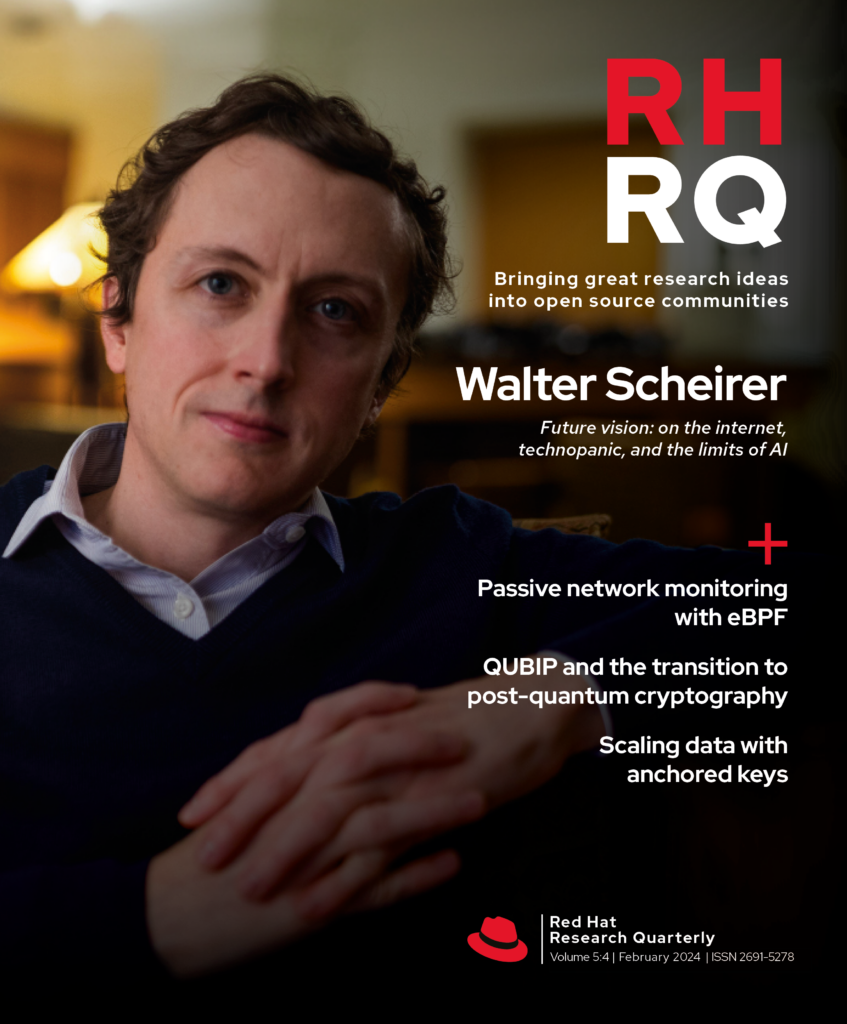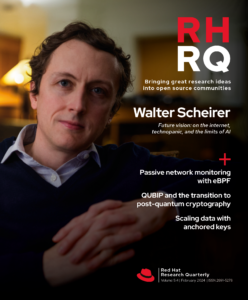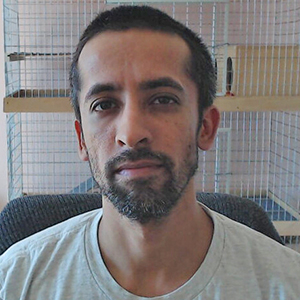This issue of RHRQ begins with a list that is the fruit of the labor of many people. It is a list of the winners of the 2024 Research Incubation Awards given by the Red Hat Collaboratory at Boston University, and it represents a major step forward in Red Hat funding. We’ve been through this award process three times, and although I’ve been happy with the outcome each year, I believe this one is the best by far. Some projects continue promising work we began in prior years, like testing for hypervisor vulnerabilities using fuzzing or the DISL project to streamline deploying working code to FPGAs, microcontrollers, and other devices. Some are brand new, like privacy-preserving ML training with differential privacy expert Adam Smith or Manuel Egele’s new work on detecting deadlocks in binary-only kernel modules. What all this year’s projects have in common is strong interest from Red Hat engineers and a path toward useful results. Whether those results are real code landed upstream or a well-grounded answer to a difficult technology question, they all support the mission of the Collaboratory: connecting great research ideas with upstream communities.
It is always surprising to me that I, an English and music major whose formal training in computer science was a junior high class in FORTRAN, find myself leading research efforts for a software company. So I’m pleased to offer you this issue’s interview with Prof. Walter Scheirer of Notre Dame, a Red Hat Research collaborator who brings a strong background in the humanities to his work. A computer vision expert, Scheirer has made a name for himself as a technology ethicist with his book A History of Fake Things on the Internet, an exploration of the history of “fake news” and how expectations around honesty and reliability online may be misplaced. “Don’t believe everything you read” seems like a good maxim here, but maybe more important is the always-relevant principle, “There is no free lunch.” If the “product” you’re using is free, chances are that you—and the private data you’re giving away—are the product. Scheirer talks about how we often ignore this principle, along with the difficult questions about what this data processing costs us, while we worry about a “fake news” problem that has always been part of life in a free-speech society.
It seems we have a lot to say about data, privacy, and security in every issue of RHRQ. This issue features two technical reviews of security and data management projects funded by EU Horizon grants. If you’re not familiar with the European Union’s Horizon program, it is worth learning. The EU funds many interesting projects this way, and we’ve been fortunate to engage in a number of them. First up is QUBIP, an open source-focused project to develop encryption techniques that will resist quantum computing and make those techniques ubiquitous in cryptography. Cloud Button, a second, now-completed, project, is about democratizing access to and use of large datasets by making it possible to work on them using a serverless in-memory architecture. This is very useful for both research computing needs like geospatial analysis and business requirements like diagnostics and predictive analysis. Projects like Cloud Button help make access to large datasets available to anyone interested, not just those lucky enough to have a “free service” to offer in exchange.











